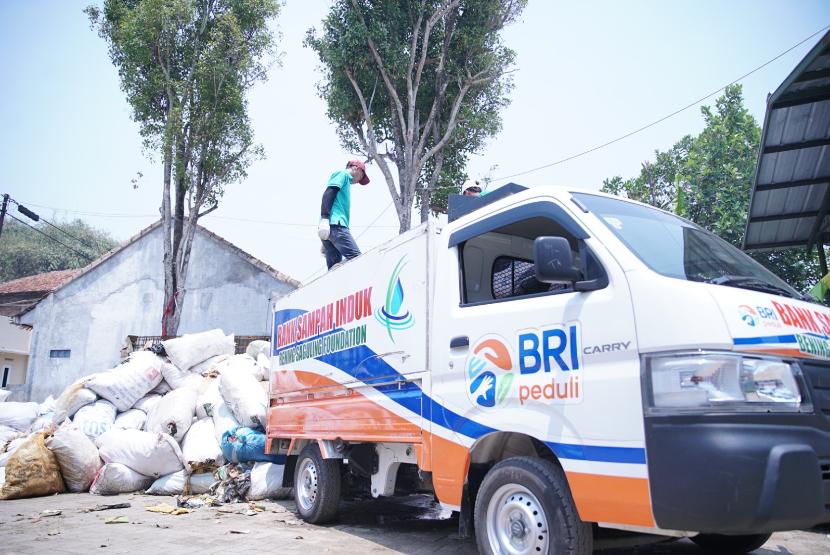REPUBLIKA.CO.ID, JAKARTA -- BRI through the Corporate Social Responsibility/CSR program continues to carry out various initiatives in addressing the problem of waste through the program. programs that can significantly help solve the problem of garbage in various regions of Indonesia.
Since its launch in 2021, the BRI Peduli 'Yok Kita Gas' program has been implemented in 41 locations in Indonesia consisting of five locations in Pasar Traditional and 36 locations in community settings. Deputy President Director of BRI Catur Budi Harto revealed that BRI Peduli Yok Kita Gas has made a real impact for people in different regions both from the social, economic, and environmental aspects.
Catur explained that BRI Peduli Yok Kita Gas is an integrated waste management program that optimizes sustainably owned land and resources. Ultimately this movement can improve public health, encourage the creation of clean and affordable energy, and help tackle climate change.
“The discarded waste is expected to be managed and utilized into electrical energy, recycled into the paper industry, utilized for asphalt mixtures, plastic raw materials or for organic types, it can be managed into compost or an electrical energy source,” Casur said on Thursday (22/2/2024).
In its implementation, BRI Peduli Yok Kita Gas is implemented in two forms, namely through Yok Kita Gas in Traditional Market and in community environment (Stand Alone Location). For implementation in the community environment, the implementation of the program is carried out at the site of the Trash Bank or Integrated Waste Management Place (TPST) that has been managed by communities located in densely populated areas both in the Town/Village.
Especially traditional markets, the program has been conducted in five regional markets that have the best ranking in the market.id program located in Bandung, Semarang, Surabaya, Malang and Denpasar.
“We recognize that the Market is one of the public means where people's economic activity takes place, where the activity in the Market generates garbage every day. Therefore, we invite traders and people who are active in the market to maintain the cleanliness of the market where the waste produced can be sorted and treated appropriately,” said Catur
. Since being rolled out in 2021, the BRI Peduli 'Yok Kita Gas' program has been implemented in 41 (forty-one) locations in Indonesia consisting of 5 (five) locations in Traditional Market and 36 (thirty-six) locations in community settings. - (BRI)
This effort is in line with BRI's commitment to supporting the Sustainable Development Goals (Sustainable Development Goals) implied in the Pillar of Social Development, the Pillar of Economic Development and the Pillar of Environmental Development. People in various regions of Indonesia, especially in densely populated areas or urban areas, benefit from this program, among other things, gaining insight into the conditions of waste management, gaining skills in sorting garbage from home, so as to be able to solve the problem of household garbage
.
From the social side, the community receives education about waste management and trainings such as waste management training, reporting training, bookkeeping training, HR management training and the use of waste management tools. In addition, 3,065 market traders in different regions were recorded to have followed socialization about garbage banks and waste management in
the market.
From the environmental side, BRI Peduli Yok Kita Gas educates the public on the sorting of waste both organic and inorganic, where the collected garbage is selected and sorted into organic and inorganic waste. Inorganic waste can be reprocessed into goods of economic value. In support of such waste management, BRI has channelled 173 units of communal maggot tubs and 50 units of Black Soldier Fly (BSF) cages
.
“As a result, 236,153 kg of organic waste and 471,323 kg of inorganic waste have been collected in the garbage bank so far. In addition, it was recorded that 6,921.5 kg of maggot were sold and 34,739,868 kg of carbon CO2e was
reduced through waste banks,” said Catur.
Further from the economic side, the Anti Garbage Movement Yok Kita Gas managed to change people's view of turning trash into money. Inorganic waste will be cut using the waste counting tools provided by BRI for the community. After the garbage is cut, the garbage is sold to garbage collectors and the community also earns income.
“As a result, the total savings of people who exchange garbage into money in junk banks amounted to Rp 104,420,916 with the number of registered junk bank customers totaling 8,699 customers,” said Catur.


